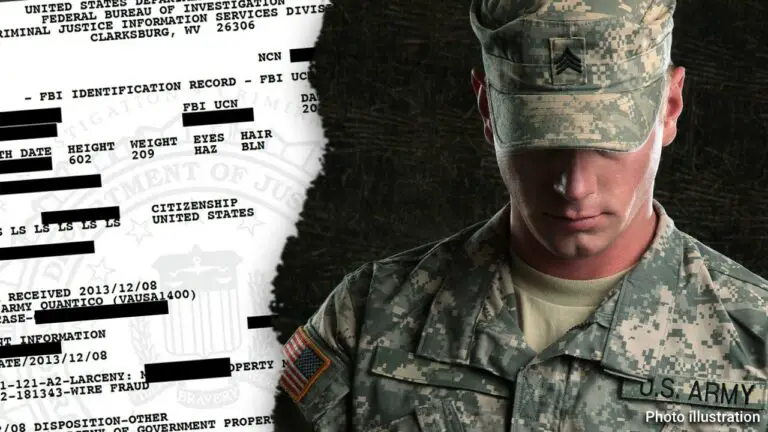States Offer National Guard Members Bonuses to Recruit, But Critics Fear History Repeating Itself
In a bid to address the military recruiting crisis, over a dozen states are introducing bonus programs for National Guard members who refer individuals to join their ranks. However, concerns have arisen that these new incentives resemble a previous program that unfairly tarnished the records of innocent soldiers and veterans.
1st Lt. Llewelyn Hughes, a retired member of the Vermont National Guard who experienced the negative consequences of this earlier program, shared his apprehensions: “I just don’t want to see another generation of soldiers experience what I had to experience.”
Approximately 15 states have initiated programs that offer National Guard members bonuses ranging from $500 to $1,000 for successfully referring new recruits. These initiatives come as military branches grapple with their most severe recruiting crisis in five decades, ever since transitioning to an all-volunteer force.
While the names and acronyms of these programs vary from state to state, such as J.E.E.P., G.E.E.P., and G.R.I.P., they share a common framework. Service members recommend friends or acquaintances to join the National Guard, and upon the recruits’ completion of basic training, the referring member receives a bonus.
Skeptics highlight the similarities between these programs and the National Guard Recruiting Assistance Program (G-RAP), which was initiated during the Global War on Terror and subsequently discontinued in 2012 due to fraud allegations. An Army investigation, however, uncovered minimal fraud but still left around 2,000 innocent soldiers and veterans with erroneous marks on their records, causing significant setbacks to their careers. In many cases, these inaccuracies appeared as arrests on criminal background checks.
In late 2022, the Army acknowledged its error and began rectifying these soldiers’ records.
States are aiming to emulate the positive aspects of G-RAP while avoiding any impropriety. Lt. Col. Clay Strickland of the Alabama National Guard explained that Alabama was among the first states to launch the Joint Enlistment Enhancement Program (J.E.E.P.) in November 2020, which has so far recruited 285 new enlistees.
Everyone agrees that G-RAP achieved its recruitment goals, bringing in approximately 150,000 troops. John Goheen of the National Guard Association stated, “It did help recruit tens of thousands of good soldiers at a time when the nation needed them.” While there was some fraud, it was not as extensive as the Army had alleged.
Despite these successes, the fear of a repeat of G-RAP’s mistakes still lingers among present-day service members, making them wary of participating in similar programs.
To address these concerns, states have made efforts to institute oversight mechanisms to prevent wrongdoing. Unlike G-RAP, which involved a large number of people and was managed by a private company under a National Guard Bureau contract, the new programs operate at the state level. This decentralization allows for better control and monitoring.
Additionally, states are taking precautions to sever the connection between recruiters and their assistants, minimizing opportunities for fraudulent activities. The process is also subjected to periodic audits to ensure adherence to the rules, and allegations of wrongdoing would be investigated at the state level rather than by the Army Criminal Investigation Division.
Despite these measures, concerns persist that the new programs lack precise accountability procedures, making it challenging to address accusations of wrongdoing effectively. Some states are considering contracting with third parties to oversee their programs, a move that previously led to disastrous results in G-RAP.
The National Guard Bureau has proposed the idea of making every Guardsman a recruiter by providing a bonus for each new recruit they bring in, but a new G-RAP program at the federal level has not been announced yet.
As Llewelyn Hughes, who had his criminal record cleared, pursues a retroactive promotion, he remains concerned that the Army has not demonstrated a commitment to avoid repeating past mistakes. The lack of transparency and public disclosure regarding the G-RAP report only exacerbates these worries.

